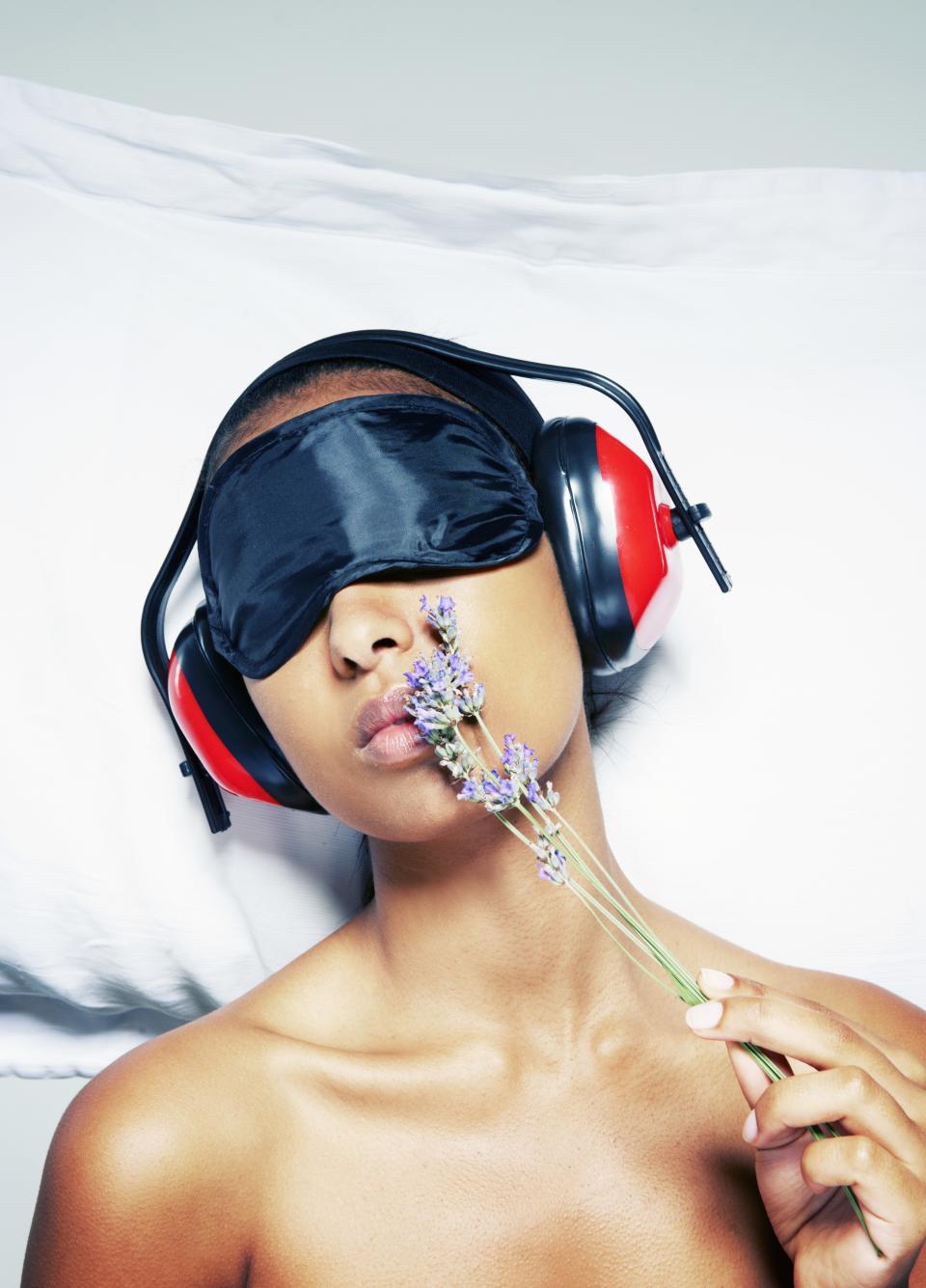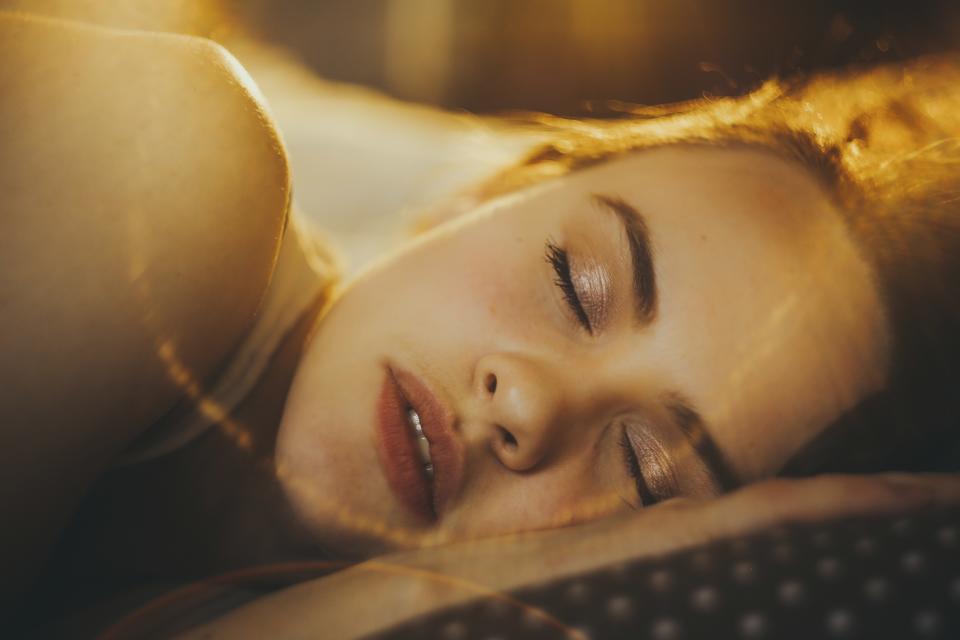What to Know About Taking Melatonin Supplements to Improve Your Sleep
There are few things more frustrating than being wide awake when all you want to do is sleep, especially when it’s a regular occurrence. But what can you do about it? If you’ve ever Googled it, you likely encountered a neverending supply of solutions that people swear by, including behavioral changes to incorporate into your routine, as well as medications such as Ambien and natural supplements like melatonin. You've probably heard of melatonin supplements, but what exactly is melatonin, anyway? And can taking it potentially help solve your sleep woes? Here’s what you should know about this popular supplement.
What is melatonin?
Melatonin is a hormone produced by the brain’s pineal gland that regulates your body’s natural sleep-wake cycle. “In humans, it’s a marker of nighttime,” Alcibiades Rodriguez, a neurologist and medical director of the Comprehensive Epilepsy Center–Sleep Center at NYU Langone Health, tells Allure. “Human beings are programmed in some way to work or do things during the day and sleep at night.” And the two things you need in order to make that happen, he explains, are sunlight and melatonin.
Sunlight is the stimulant that wakes you up; and when the sun goes down and it starts getting dark, the melatonin levels in your body naturally increase. It all works as part of your circadian rhythm, or internal clock. Rodriguez explains that melatonin levels in your bloodstream begin to rise about two hours before your usual bedtime (that process is called Dim Light Melatonin Onset (DLMO)) and stay elevated through the night until you wake up and are exposed to light, which suppresses the hormone.
Who can benefit from melatonin supplements?
Melatonin supplements, which are available over-the-counter (usually in pill form), can be used to treat sleep disorders; particularly those that relate to circadian rhythm, like Delayed Sleep Phase Syndrome and Advanced Sleep Phase Syndrome, Rodriguez explains. “We use it as a help to regulate people who have problems with the sleep-wake cycle,” he says.

woman with sleeping mask
Getty ImagesIt’s often used, for example, by people who have insomnia — though this isn't necessarily recommended given the fact that everyone's body is different — as well as shift workers who need to be awake at night and asleep during the day. Rodriguez says melatonin has also been found to be helpful in elderly people, whose natural levels decrease with age, and children with disabilities. Some people also use it to help overcome jet lag and adjust their internal clocks to vastly different time zones.
How is it different from other sleep aids?
“Technically, melatonin is not a hypnotic...a medication that makes you drowsy or sleepy,” Rodriguez says. “It can make you sleepy sometimes, but that’s not the main purpose of melatonin.” A melatonin pill supposedly won't knock you out immediately or put you into a deep, medicated sleep state, and, according to some proponents, it isn't likely to make you feel groggy or hungover in the morning. Its general purpose, Rodriguez stresses, is to help regulate your sleep-wake cycle.
What’s the proper usage?
Again, a melatonin supplement won’t immediately put you to sleep. If you want to reap its possible benefits to treat a sleep disorder, take the pill a couple hours before you want to go to sleep. If you’re using it to help minimize jet lag, your best bet is to use the supplement to help shift your sleep schedule in the time leading up to your trip. If you’re traveling somewhere that’s two or more time zones ahead of where you live and you want to be alert during the day there and asleep during the night, it’s going to take some rejiggering of your circadian rhythm. “We advise people, to be adapting, you will need to move your clock ahead to try to match the time in [your destination],” Rodriguez says. In order to do that, you’ll want to inch up your bedtime by an hour or two in the week or so leading up to your trip — but if you typically go to bed at 10 p.m., it’s likely your body won’t be so willing to snooze at eight instead. That’s where a melatonin supplement can be handy, to give it that nudge. It likely won’t completely prevent jet lag, which Rodriguez says is “unavoidable,” but it can help. But, he warns, “if you’re going for one week, that’s probably not really worth it. It still is going to take several days to adapt; it’s not that easy.”
As for what exactly to buy at the drugstore, Rodriguez suggests sticking with “pure” melatonin supplements, rather than buying the bottles that also contain things like valerian root and GABA. Any additives, even natural ones, may change the way the supplement works and cause you to be drowsier than you expected or react differently; so read the label carefully to make sure the bottle contains melatonin and only melatonin. Although melatonin supplements are sold in varying dosages, Rodriguez says it’s not necessary to take any more than one to three milligrams at a time, noting that our bodies only naturally produce about 0.3 milligrams per day. “If you increase the dosage, it may have some hypnotic effect, but then you’re going to have side effects,” he says.
Most importantly, is melatonin safe?
Like many medications, melatonin can have side effects, like dizziness, nausea, headaches, and drowsiness, but Rodriguez says overall it’s safe. Side effects like headaches and nightmares typically occur when you take high dosages, he notes. “[In] a low dose, you can take it probably without any issues,” he says. “Now, if you’re going to take 10, 20 milligrams a night — I don’t know anybody who’s doing that — but nothing in excess is healthy.” If you’re taking a low-dose supplement, Rodriguez says it’s likely to be safe to take long-term.
That said, if you’re having any sleep issues, it’s always worth checking in with your primary care doctor before self-medicating. They can help you identify the issue (your insomnia could be the result of a totally separate medical problem, for example) and figure out the best course of action. “When [your] primary care doctor says, ‘Listen, you’re healthy — maybe you need some guidance from the sleep doctor,’ then come to us,” Rodriguez advises. “First check the basics.”
Read more stories about sleep:
How to Get Better Sleep and Wake Up Refreshed in the Morning
A New Happiness Study Says We Should All Spend More Time in Bed
Now, learn the history of drag culture from the stars of Drag Race:


